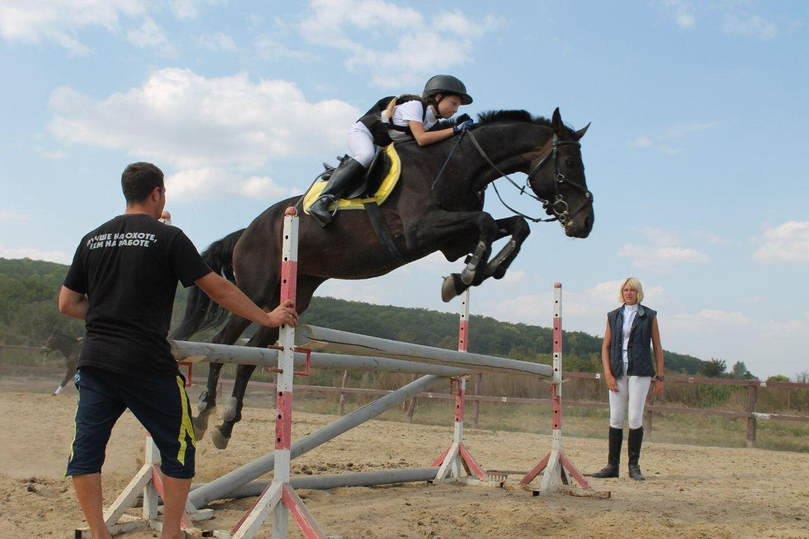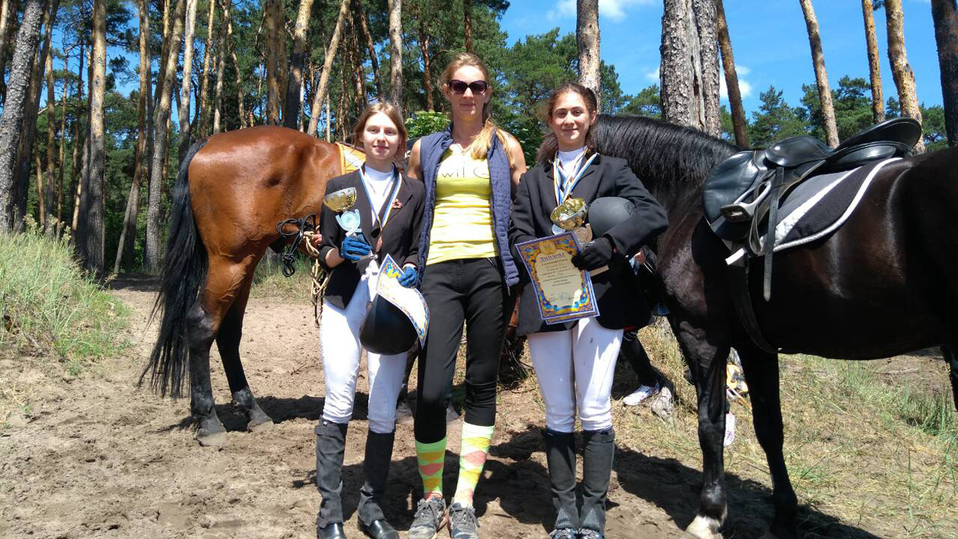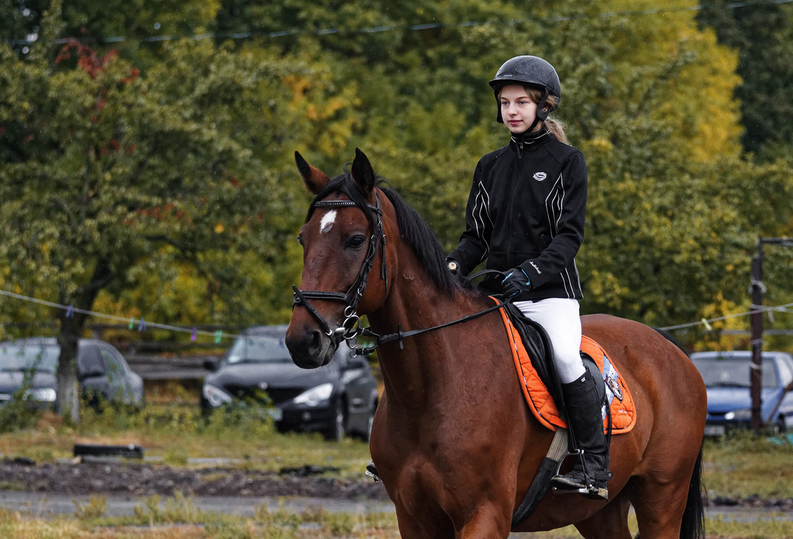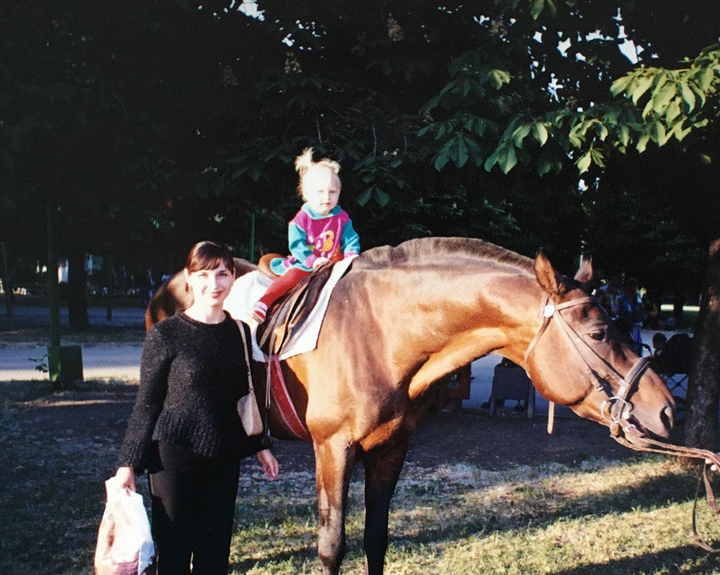Our compatriot has chosen an unusual profession for herself in Germany
I was introduced to Bertha KRAYBERT by chance. How often it happens in our life. It was a ceramics master class held in the famous private art school “LOTOS” by Tatiana Kulakovskaya in Hanover, which I gave. During an exciting journey into the world of ceramics, we got to know Berta better. And as it turned out, her appearance on this course was not accidental. Berta’s story seemed to me worthy of sharing it with the readers of MK-Compatriot.
─ Bertha, please tell us a little about yourself. How did it happen that you ended up in Germany?
─ I am 19 years old, I am interested in so many things, for example, ornithology, biology, art. But the most important interest for me has always been horses. In September 2018, my family and I moved from Ukraine to Germany. My dad is an ethnic German, and this was the main reason for moving.
I was born in Ukraine, Kharkov. I still adore this city and come there with pleasure, many fond memories of my friends, school, training are associated with it. My parents are people who are far from creativity or sports, but they have always supported me in all my endeavors. I think it’s important that I was given the opportunity to choose what I myself would like to do.

─ Where did you study here in Germany?
─ I started my studies at the gymnasium and continued at school. I cannot say that the program is very different or that it is much more complicated, but a lot depends on the teachers and their attitude towards you. Unfortunately, initially I was not lucky with the gymnasium, I had to face a rather disdainful attitude towards myself. Otherwise, there are many points that I like more in the German education system, for example, a clearer structure and the absence of a rigid hierarchy in the teacher-student relationship. The atmosphere is more relaxed, maybe it “dissolves” someone, but it only motivates me to ask questions and understand everything in more detail, without fear of facing irritation and discontent. I came to school with pleasure and interest.
─ Was this your choice of a vocational school or was it parental advice?
─ As soon as it came to getting an education, I immediately knew which direction to choose, so hardly anyone could influence this decision. Moreover, this was my goal even before moving, I always wanted to connect my life with equestrian sports. Justus-von-Liebig-Schule is an agro-economic vocational school that provides an opportunity to try your hand and understand whether the profession is suitable during the first year trial, as well as to continue vocational training in the specialty. My specialty is called Pferdewirtin – an economist in the field of horse breeding, so I guess it can be translated.

─ Have you faced any difficulties when applying as a foreign student?
─ My specialty is quite narrowly focused, so it takes into account any pros and cons when choosing candidates, and, of course, knowledge of the language played an important role in this. But the main difficulty is the difference between the education systems in Germany and Ukraine. All the time it seemed to me that I was late somewhere, did not take into account something, and since I dealt with all the issues and paperwork myself, it was tense.
─ Is the specialty in which you study rare in Germany? Do you have a favorite subject, teacher?
─ My teaching includes theory and practice. Twice a week we visit the enterprises and work there, most of the time we take care of the horses: we feed, change the bedding, take them out into the fresh air. Sometimes we ride under the supervision of trainers and work with horses attached to us. Theory includes specialized subjects, for example, “horse movement”, “business organization”, “nutrition and health”, in addition to this we have several general education subjects – German, English, politics.
For me, the most interesting subjects that are related to the anatomy of the horse, its structure. I like the entire teaching staff, because we are all united by an interest in a common cause. I would like to absorb as much information as possible, write down almost every word.

─ Are there many foreigners, Russian-speaking students, study with you? Did you manage to make close friends, and who are they – Germans or foreigners?
─ The vast majority of Germans study with me. I relatively recently moved to Hanover, but I have already managed to find my circle of friends, which makes me happy. Most of them are Russian-speaking people. Usually we are brought together by a common experience or mentality. But I was not looking for “Russians” purposefully, basically, it depends on common interests and outlook on life.
─ What do you do in your free time at a professional school? What helps to adapt to new life conditions, to new reality?
─ I draw, write prose, read books, communicate with my friends. At first I lived in a village and it was more difficult with entertainment, I rode a bicycle or went to the forest to watch birds. Now I go to museums, attend various events. The support of close people and the fact that we stayed in touch all the time helped me to adapt. The support from the people living here, the teachers, who saw potential in me, also helped. This gave me hope that I would not be “lost” in life in a new country and that I had prospects.

─ Was German a new foreign language for you or did you study it at school in your home country? What helped to quickly master it and improve it?
─ I studied German at school and additionally took language courses. From time to time I took part in German youth projects, where there were either compulsory language classes, or they spoke to us exclusively in German. But when I arrived and found myself in the environment, I acutely felt that my knowledge was negligible for a normal understanding of speech. The need to learn made me learn the language much faster, I couldn’t let that push my ambitions aside.
─ Share your impressions of Hannover. Was it easy to find accommodation that attracts you in this city?
─ Hannover impressed me on my first visit. And not only sights, because many German cities are rich in them, but, above all, in their comfort and atmosphere. I didn’t feel alien, on the contrary, I wanted to stay here. A significant role is also played by the fact that Hanover is the center of equestrian sports in Germany, here is also the homeland of the Hanoverian horse breed, which is famous for its athletic performance.
Transport links are very convenient here, I live in the suburbs, but this does not prevent me from reaching the city center in 15 minutes. Finding a place to live was not easy, we were looking for a suitable apartment for several months, we had to combine the move and the beginning of school.
This city contains a lot of everything, often during the trip I just want to get off the tram and see these beautiful buildings, interesting art objects, lovely parks with lakes …

─ What changes have occurred in university life with the onset of the pandemic?
─ We had to switch to distance learning, and since we were not ready for this, we had to very quickly become convinced of the extent to which learning via the Internet is inferior to the usual classes held in school. Now we are studying, but with a huge number of restrictions, we have to put on masks in class, keep our distance, constantly ventilate, and all these factors are not very conducive to the educational process. But it’s good that at least that’s how we learn. Self-education is not for everyone. It’s hard to organize time, it’s hard to get started on some tasks …
─ Berta, thank you for an interesting and informative story about yourself! What would you wish to your peers who found themselves in exile in Germany?
─ Do not be afraid to lose time, go forward, no matter what, achieve not what is convenient, but what you really want. Look for courses, events, be active, then prospects will open up. Develop and be prepared for the fact that things don’t always go according to plan … But that’s okay.
Irina Afanasyeva,
photo from the personal archive of Bertha Kreibert.
Germany says this: